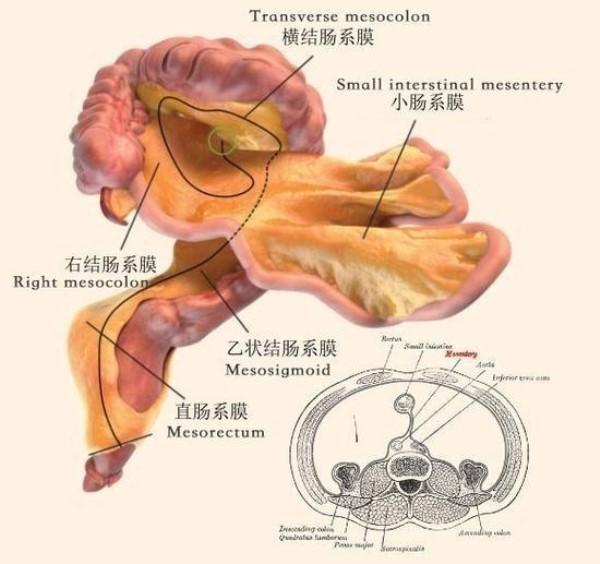Last year was a brilliant year for research, though it may have been a bad year in other ways. From gravitational waves to dinosaurs, we discover many little secrets of the surrounding world. But as a recent high-profile study found, there are still many things (including ourselves) that go undetected.
In the journal Lancet Gastroenterology and Liver Disease, scientists officially announced the discovery of a new organ in the human body. It's hidden in our stomachs and has only just been sorted out.
It is called the mesentery (meaning "in the middle of the intestine"), and we can find it in the digestive system. Previously, Leonardo da Vinci was the first to describe the organ, but it wasn't until 2012 that it was considered a series of individual structures that kept the intestines attached to the abdominal wall like girders.
The team from the University of Limorec used a complex microscope calculation to confirm that the structures were interconnected and appeared to be part of the overall system. A lot of the studies were conducted in patients who had most or all of their colon removed during surgery.

Since 2012, it has been taught to medical students as a new organ. It is now added to the famous Gray's Anatomy textbook and described in a new paper.
Calvin Kofi said in a statement: "The paper has been reviewed and evaluated, and now we declare that there is an organ in the human body that has not yet been recognized." He is a professor of surgery at the University of Limerick and is the lead author of the study.
As amazing as this is, medical experts know nothing about the other accurate functions of the mesenterium except to know that the mesentery has a supportive nature. Perhaps its proximity to the intestine may give researchers some hints, but so far there has been no accurate conclusion.
"We did the anatomy and the structure, and the next step was to know what it would do." Kofi said. "If you know what it's functioning, you can determine what's not working properly, and then you know its pathological features." By combining these, we can build the science of the mesentery... This will be the basis for a whole new field of science. ”
Blood vessels, nerves, and lymphatic vessels carry plasma, which is rich in white blood cells, and white blood cells reach the intestine through the mesentery, so the mesentery does have a positive function. Although, more research is needed to know how effective it is.
Tadpole staves compiled from iflscience, translator Xiao Zhao, reprinted with permission